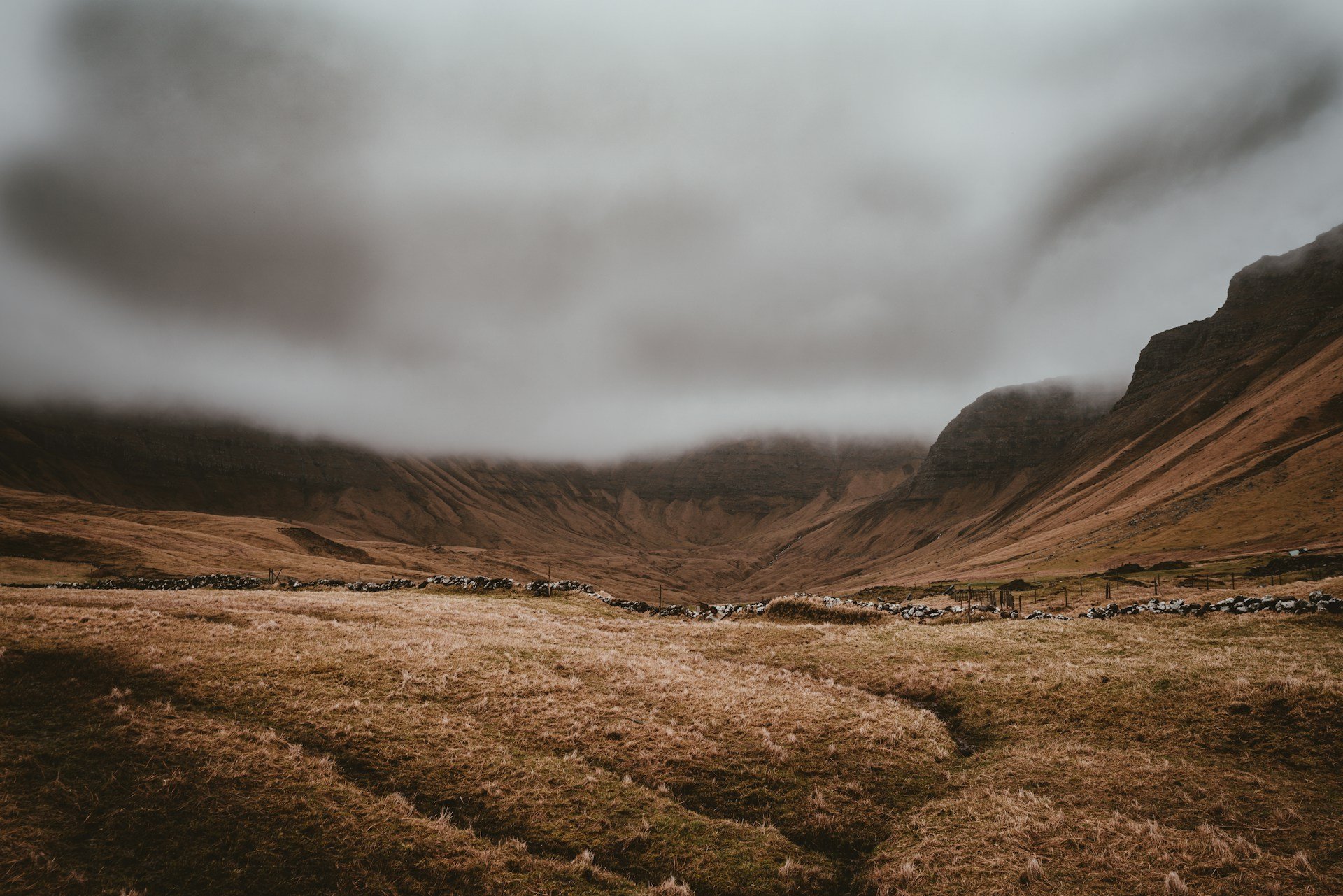
Have you ever had a moment when something ordinary became extraordinary? For me, that often happens at the beach—watching the waves roll in, feeling the rhythm of the tide, and letting the ocean’s vastness quiet my soul. There’s something about that stillness that puts me at peace, reminding me of my pursuit to lead a quiet life. It seems often that when you stare at something bigger than you, it somehow changes your perspective, and helps you put everything else into perspective – and it helps you to accept life as it is. You become more okay with obscurity. It’s in those moments of simplicity that the ordinary becomes infused with awe, mystery, and divine purpose. For this reason, Ocean City (Maryland) has become sacred space for me – a space for not only annual vacation trips but also it feels like a sacred space for spiritual retreats, prayer, and discernment. Maybe you’ve felt these moments too—a quiet walk where God’s presence feels near, or an unexpected conversation that changes everything.
The Obscurity and Wilderness of Our Lives Is Often Physical, Spiritual, and Emotional.
Moses’ story in Exodus 3 reminds us that God can transform the most ordinary — even mundane and overlooked places of obscurity — into something sacred. Moses’ journey was one of many transitions. In many ways, Moses is in a wilderness moment that is physical, spiritual, and emotional. Born into slavery, he was raised away from his people in Pharaoh’s household, and then exiled into the wilderness. Moses moved from obscurity to privilege and back again to obscurity. It was in the moments Moses was the least secure that God was the most near. It was in the wilderness, with nothing to his name, tending his father-in-law’s sheep in a desolate land, that God met him in an extraordinary way, in an ordinary place. As we see in the story, Moses carries deep shame in the wilderness (taking matters into his own hand and killing someone), insecurities, and perhaps even a sense of an orphan spirit—feeling unrooted and uncertain of his place, people, and gifting. After being raised in Pharaoh’s palace yet born as a Hebrew, he struggled with his identity. Moses past mistakes, including killing an Egyptian in a misguided attempt to defend his ethnic people, led to his exile in the wilderness. This fractured past created a tension within him, making it difficult to embrace the calling God placed before him. Moses has to wrestle with God in his physical space, his spiritual life, and in his emotions. Starting in the end of Chapter 3, and going for a few chapters, the doubting and insecurity of Moses plays out before God in the wilderness.
It Is God Not the Location That Makes the Space Special
Horeb (meaning dry place or desolate), also known later as Sinai, wasn’t initially a holy place. It was just another mountain in a desolate landscape. The herds that Moses is watching are like divine guides who take him into this space in search of grass. There is nothing special about this landscape. It is a wilderness place where Moses is working through the mundane and the thoughts in his mind as he works. However, God’s presence meets him in the wasteland of obscurity, and transformed the dry and desolate place into Mt. Sinai. Mt. Sinai becomes the place where God meets Moses, gives Moses the ten commandments and gathers the people of God to worship – and carries much prophetic imagery. The obscure Mt. Horeb became sacred territory because of this divine encounter. However, the burning bush wasn’t special because of its location, the plantarum species, or its appearance—it was special because God chose to be there. The same is true with Mount Sinai. God engaging Moses and the people of God in that space is what redefined their lives and the landscape. The same is true in our lives. Some seasons God is on the mountain, sometimes in the bush, sometimes a still small whisper in the wind. God will use many ordinary things, in the obscure moments, to engage creation. Moses had an appointed time to encounter God, and in that wilderness season God was developing Moses’ character and calling, and probably deconstructing some things too. When God meets Moses in that place, the landscape is transformed. This story reminds us about how God often meets us in the quiet, forgotten places and calls us into something more. Even more, it is in those quiet, forgotten places and seasons, that God utilizes to shift and shape our character and calling.
The Wilderness Shapes Our Character and Calling
God often shapes our character and calling in the quiet, hidden seasons of life—those times when we feel unseen, uncertain, or even stuck. Just as Moses spent years in the wilderness before stepping into his purpose, we, too, go through refining periods where God works beneath the surface, preparing us for what’s ahead. These are There are places in our history we have to wrestle with God and the problem of pain. Even more we often have to wrestle with God in our physical, spiritual, and emotional state. The wilderness is a space to wrestle with ourselves. Rabbi Leibel Gniwisch mentions that it is in the wilderness that Moses learned “God wouldn’t take no for an answer.” In those wilderness moments of Exodus 3-4, we see Moses being chosen by God. However, the wilderness is important, because “God does not give anyone a large task before testing their ability with a small one.” The small tasks prepare our character and calling for the big tasks. And the wilderness was a task. It is in the wilderness that a shepherd with an identity crisis is reconnected to his God, people, and he becomes a shepherd for God’s people. In these seasons, God molds our hearts, teaches us humility, and helps us confront our fears and past mistakes. We see God uses our time in these places to liberate others. First, it is in the stillness that we learn to trust God, letting go of our own striving and embracing God’s timing. These moments of waiting are not wasted; they are where God shapes us into the people God has called us to be.
Do Not Despise the Wilderness Moments of Wrestling With Identity
Moses’ encounter with the burning bush reminds us that God is not confined to grand temples or dramatic displays. God speaks in the ordinary, the overlooked, and the obscure moments. I believe we will stay in our wilderness places until God’s timing is right, but also until our character and calling are fully shaped. The longer we take to accept what God is doing, the longer we may wrestle with God and the calling of God in the wilderness. It may take some one year, and others forty. As Rabbi Leibel Gniwisch shares, “The burning bush teaches us not to be let down by our current state of not-knowing. There is more beauty in the journey of the newly initiated than in the perfection of the righteous.” Do not despise the wilderness moments. Wrestle with your identity before God. Embrace the way God is transforming your character and character. Even more, don’t be burned out by the not-knowing. However, the story of Moses tells us that when God finally meets us, God will invite us close – but not too close. The ground and season becomes holy. In God’s presence we will be driven to greater humility because of God’s holiness, but we will also need to go with trepidation, the fear of the Lord, and with our sandals off as slaves in awe-striking worship.
God Promises To Be Closer
In the story of Moses, God does not call Moses based on his own abilities, strength, or qualifications. Instead, God makes it clear that Moses is not acting on his own power but it’s qualified because the presence of God will be with him. When Moses expresses doubt about his ability to lead, God doesn’t respond by boosting his self-confidence or listing his strengths. Instead, God simply says, “I will be with you” (Exodus 3:12). It is God’s presence that qualifies Moses, not his past, his skills, or his confidence. The only four things Moses had to do was (1) stay alert in the wilderness, (2) step closer when God invited him, (3) in worship respond with ‘Here I Am,’ and (4) obediently walk out the tasks that God entrusted to him. This truth is just as relevant for us today. We are not called to rely on our own power, but to trust in the One who goes before us and calls to us. When we step into what God is calling us to do, we do so with the assurance that He is with us, equipping and empowering us every step of the way. In the meantime, we have to accept the wilderness but stay alert.
Closing Remarks
I’m always interested in a good conversation or a cup of coffee. Let’s connect! I love hearing others’ stories and sharing my own while finding ways to support others on their journey. Feel free to reach out to me via email —I’d love to hear from you. You can also connect with me through Facebook, Instagram, Bluesky, X, LinkedIn, Threads, and/or YouTube.
The NET Bible (New English Translation) is a translation of the Bible with 60,932 translators’ notes! It was completed by more than 25 scholars – experts in the original biblical languages – who worked directly from the best currently available Hebrew, Aramaic, and Greek texts. I invite you to learn more about it, discover their resources, read it online, download it for free, purchase it, and use their online bible study software (don’t forget their iPhone app).













